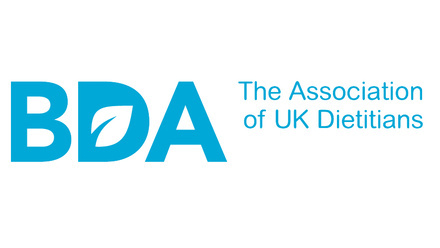In an article about the soaring numbers of children being treated for an eating disorder, The Times highlighted the waiting times some children are having to wait to receive treatment.
In response to the article, members of the BDA's Mental Health Specialist Group wrote to the Editor of The Times to highlight the troubles faced across all eating disorder services. Here is the letter.
Sir,
A recent article highlighted the growing number of children being treated for an eating disorder, as well as the disappointing times many are having to wait to receive treatment within the NHS. As dietitians supporting people with eating disorders, working within a multi-disciplinary team, we wanted to emphasise the importance of early intervention and the desperate need for investment across all eating disorder services in the UK.
People with eating disorders across all age ranges are waiting far too long for treatment. Delays to assessment and treatment exacerbate the physical and psychological impact upon the person. It is well known that failing to provide early intervention within eating disorder care increases treatment durations, cost and the likely need for inpatient care.
In a healthcare system already under significant strain, increasing long-term healthcare costs worsens service capacity issues. We see the effect of this every day with our patients and our teams.
This is not unique to children’s services though. Eating disorders are just as likely to start in adulthood as childhood. Adult eating disorder services are under strain too and in fact a 2023 study identified 92 percent of adult community eating disorder services having a waiting list for treatment which could be up to two years.
The same study highlighted a reduction in the rate of accepted referrals, reflective of system strain, which underscores a critical issue in the current treatment landscape – the changing threshold for accessing care. Many people are simply being turned away from treatment deemed ‘not sick enough’ which is extremely concerning when untreated eating disorders have the highest mortality rate of all psychiatric conditions.
Child and adolescent eating disorder services have had some investment since 2015, accompanied by waiting time standards which required services to ensure that by 2020/21, 95 percent of children and young people in need begin treatment within one week for urgent cases and four weeks for non-urgent cases. However, sadly this investment did not go far enough and many children aren’t being seen within those quality standards, as identified in your article.
The same additional investment and referral monitoring has not however been made for adult services.
This certainly isn’t a situation that the dietetic workforce wants. We desperately want to help people, have early intervention and support them with their recovery, alongside our colleagues in other areas of healthcare.
Alongside a need for investment, staff shortages across all professions within the NHS is a major contributing factor to service capacity. The British Dietetic Association (BDA) is calling on the government to invest in the dietetic workforce in order to meet the growing demand for dietetic care. An effectively staffed NHS can provide timely, high-quality assessment and treatment, leading to better outcomes for the people in our care.
As a specialist group of dietitians, working across mental health services, we are committed to upskilling the existing workforce, who may not specialise in eating disorders, to have more confidence and the evidence-based knowledge to support this patient group. We’re also doing what we can to recruit more dietitians, alongside the BDA, promoting what is a brilliant and rewarding career.
What we need though is the investment to increase headcount- making more jobs in mental health dietetics available. It’s essential we make a career in the NHS attractive and that we capture eager graduates that want to work in this area of dietetics.
Apprenticeships are expected to make up a significant proportion of training routes into clinical roles in the coming years, as identified in the government’s NHS Long Term Workforce Plan. We welcome initiatives to diversify routes into dietetics, however for this to be effective we need to have roles available for apprentices at the end of their training. We’re yet to see where these jobs will come from.
Of course, this issue is multi-faceted and reaches beyond dietetics. Tackling eating disorder service shortfalls effectively needs teamwork across multiple government departments including health, education, and social care. A joint governmental task force could help to address some of the issues. And, with Wes Streeting’s eagerness for getting the NHS out of its crisis we might start seeing the investment needed to improve the situation for the people in our care.
Thank you for highlighting such an important issue.
Yours sincerely,
Stephanie Sloan, Registered Dietitian and Chair of the British Dietetic Association’s Mental Health Specialist Group
Kieran Bryant, Registered Dietitian and Eating Disorders Education Officer of the British Dietetic Association’s Mental Health Specialist Group







